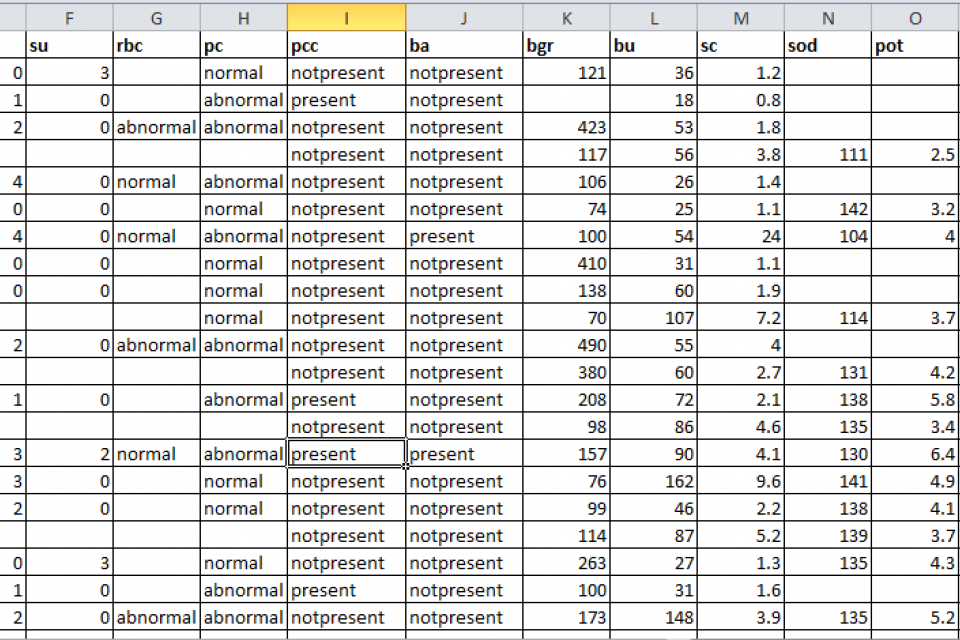Datasets
Standard Dataset
Chronic kidney disease
- Citation Author(s):
- Submitted by:
- DEBOSREE GHOSH
- Last updated:
- Tue, 06/11/2024 - 05:08
- DOI:
- 10.21227/2x4h-ev87
- License:
 1218 Views
1218 Views- Categories:
- Keywords:
Abstract
Early detection of kidney illness can be achieved by training machine learning algorithms to discover patterns in patient data, such as imaging, test results, and medical history. This will enable rapid diagnosis and start of treatment regimens, which can improve patient outcomes. With 98.97% accuracy in CKD detection, the suggested TrioNet with KNN imputer and SMOTE fared better than other models. This comprehensive research highlights the model's potential as a useful tool in the diagnosis of chronic kidney disease (CKD) and highlights its capabilities. The results of the experiment indicate that the KNN classifier outperforms the SVM classifier in terms of effectiveness. The accuracy of the KNN and SVM classifiers is 78.75 percent and 73.75 percent, respectively.
Early detection of kidney illness can be achieved by training machine learning algorithms to discover patterns in patient data, such as imaging, test results, and medical history. This will enable rapid diagnosis and start of treatment regimens, which can improve patient outcomes.
df.columns = ['age', 'blood_pressure', 'specific_gravity', 'albumin', 'sugar', 'red_blood_cells', 'pus_cell',
'pus_cell_clumps', 'bacteria', 'blood_glucose_random', 'blood_urea', 'serum_creatinine', 'sodium',
'potassium', 'haemoglobin', 'packed_cell_volume', 'white_blood_cell_count', 'red_blood_cell_count',
'hypertension', 'diabetes_mellitus', 'coronary_artery_disease', 'appetite', 'peda_edema',
'aanemia', 'class']
More from this Author








Comments
kidney
test